Education
Teacher Education Course
Did you become interested in science at school? You can now pass on your enthusiasm and high-level scientific knowledge to the next generation through teaching. At Science Tokyo, it is possible to acquire a mathematics / science teacher's license for junior high school, and a mathematics / science / information / engineering teacher's license for high school.
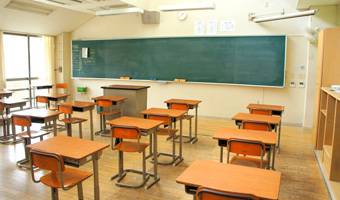
Featured Courses
-
Development and Learning I
 Undergraduate Degree Program (100-Level)
Undergraduate Degree Program (100-Level)Students learn basic knowledge of developmental phenomena and methodology related to education. Topics mainly include the development of scientific and logical thinking, development of morality, and technology for measuring developmental function.
Associate Professor Kimihiko Yamagishi
Undergraduate Degree Program (100-Level)Message from the teaching staff
In education science, "development" is the phenomenon of animal behavior changing over time. A familiar example of development is how a human baby acquires natural language. An important mission for elementary and junior high school teaching staff is to guide the thinking development of children/students in the proper direction. In the Development and Learning course, necessary basic knowledge for performing this role is learned.
-
Introduction to the Teaching Profession
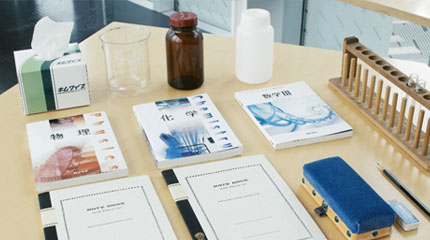 Undergraduate Degree Program (100-Level)
Undergraduate Degree Program (100-Level)The theme of this class is the teaching profession in modern society. You learn important concepts and theories about the teaching profession. Further, you will objectively and concretely consider the concrete practice of school education, using the concepts and theories of the teaching profession.
Associate Professor Yuta Suzuki
Undergraduate Degree Program (100-Level)Message from the teaching staff
Through the above learning, you will create the basis (including learning how to learn) to be a better educator and a leading teacher of the school (a teacher who continues to learn throughout life.)
-
Educational Technology
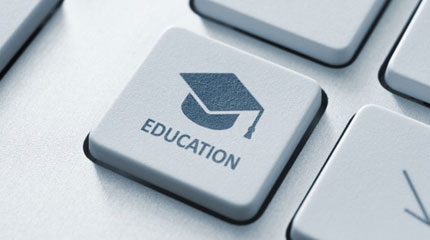 Undergraduate Degree Program (200-Level)
Undergraduate Degree Program (200-Level)Based on knowledge from Introduction to the Teaching Profession, Basic Theory of Education, Curriculum Education Method I, and courses related to operation of information devices, concepts for education engineering lesson design/improvement, educational program organization, models related to teaching/learning, basic knowledge of teaching methods, etc., and methods for lesson design/evaluation are learned. Students are also exposed to information devices as they work on assignments utilizing electronic bulletin boards, e-learning, coursework design systems, etc.
Professor Toshiki Matsuda
Undergraduate Degree Program (200-Level)Message from the teaching staff
Teaching staff need to have not only sufficient knowledge but also techniques for teaching it effectively. All skills, from cooking to acting, have theories — theories on to how to teach and design education appropriately. This is similar to how manufacturing engineering works. Education technology means acquiring and practicing perspectives and ways of thinking based on basic education theory.
-
Studies on Teaching Method using ICT
 Undergraduate Degree Program (200-Level)
Undergraduate Degree Program (200-Level)Students can learn new instructional method that realize independent, interactive and deep learning to foster next generation skills. Students design and demonstrate a mini lesson plan, using an electronic blackboard, Internet media, digital textbooks, and so on.
Professor Masao Murota
Undergraduate Degree Program (200-Level)Message from the teaching staff
The use of ICT does not automatically improve lessons. This course is an opportunity to learn empirically how ICT can be used to achieve the learning objectives of each subject. Let's try and learn.
-
Educational Practice Seminar
 Undergraduate Degree Program (300-Level)
Undergraduate Degree Program (300-Level)This seminar is a subject at the end of the teacher education course. In particular, specific research topics on contemporary issues in school education will be set based on each student's progress in acquiring prerequisite knowledge and skills, and students will exchange information, discuss, and compile and present research reports.
Associate Professor Yuta SuzukiProfessor Masao MurotaProfessor Toshiki MatsudaAssociate Professor Kimihiko YamagishiAssistant Professor Naoko Kuriyama
Undergraduate Degree Program (300-Level)Message from the teaching staff
The students will be able to analyze and re-explore the issues in the school education based on academic knowledge and discussions with other students, to make improvement plans, and to acquire the methods of education and practice research necessary for solving the modern issues of school education.
-
Directed Teaching
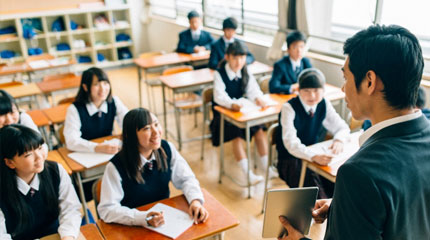 Undergraduate Degree Program (300-Level)
Undergraduate Degree Program (300-Level)The goal is to deepen understanding of the teaching profession, to acquire practical ability needed as a teacher, and to deepen understanding of students through experiences where specialized knowledge and skills learned in the lectures and seminars are actually used in classrooms. Students participate in this practical training for four weeks in total.
Assistant Professor Naoko KuriyamaProfessor Masao MurotaProfessor Toshiki MatsudaAssociate Professor Kimihiko YamagishiAssociate Professor Yuta Suzuki
Undergraduate Degree Program (300-Level)Message from the teaching staff
By actually teaching in front of a class, by having contact with students in various ways, and by coming to know how actual teachers work, it is our desire to increase your motivation for being a teacher. It is also four weeks for great personal growth.
-
Internship Program at school
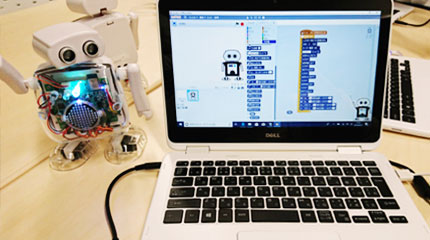 Master's Degree Program (400-Level)
Master's Degree Program (400-Level)Students conduct practical problem-solving activities that are required of teachers in local schools. We will consider how to collaborate and collaborate with schools, communities, and researchers.
This subject is certifed as Career Development Course.Assistant Professor Naoko Kuriyama
Master's Degree Program (400-Level)Message from the teaching staff
This internship receives advice from teachers in the field of education.
Then, the students think about their own problems and solve them.
Understanding the current situation of educational sites while conducting educational and practical research.
The goal is to acquire problem-solving skills aimed at achieving better education.
The complete listing of Teacher Education Course is available at Study Guide![]() .
.
